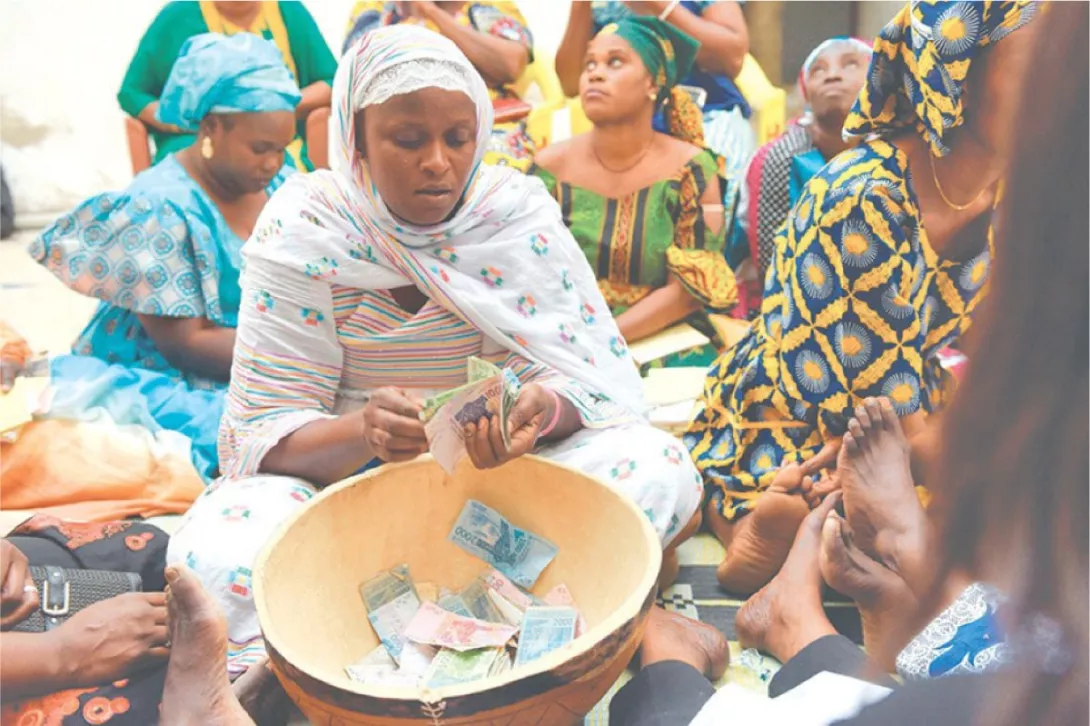
Interview with Aissatou Dione, User researcher at YUX
Why did you choose the topic "women and finance"?
During team buildings, we are used, as a whole team, to discussing topics that we find interesting and want to dig into. Women's financial behaviors in Senegal was one topic that stood out for us. We had a lot of questions about how women organise themselves financially, the social nature of money and their relationship with existing financial services. To understand all this, we conducted an initial study aimed at understanding women's financial behaviour.
Then, realizing the importance and impact of women's groups and organizations in the financial management of many of them, we explored the financial habits of women in these groups. Three types of groups were observed:
The "GIE" organisations
This type of organization has a legal status, its creation does not require a lot of documents and allows women to have easy access to credit, in particular thanks to the mechanism of shared guarantees.
The tontine: (calabass or lekett* in Wolof). These women's gatherings have no legal status but remain the most widespread means of saving.
The association: with a NINEA or not. These organizations are most often social, cultural or religious.
How did you collect the data from the study?
Following the YUX approach, we started with a literary review of published studies on the subject. Using this information, we reviewed what we thought we knew about women and their relationship to finance. On this basis we built our research hypotheses to be tested once in the field. Those hypotheses were assumptions from which a qualitative questionnaire was constructed. Data collection was carried out in four zones with a mix of urban, peri-urban and rural localities in Dakar, Thiès, Popenguine and Saint Louis.
Our search process was based as following:
Interviews: 39 qualitative interviews in Dakar, Saint louis, Popenguine and Thies
Quantitative data collection: 190 questionnaires in Dakar urban and peri-urban areas, the conditionality of which was current or past membership of a women's organization or group.
Co-creation workshops: 2 in Dakar and Thies
Group focus and dramatization (staging of custom scenario): 1 in Popenguine
Immersion: 1 in a women's group in Popenguine
What are the five learnings that impressed you the most?
Throughout the research, it emerged that women with so-called "formal" jobs often use banking services. They have at least one current account, some of them use formal savings services and most of them have already applied for a loan from the bank or a microfinance institution.
Women in the informal sector turn to microfinance institutions and tontines with a clear preference for tontines. The latter play the role of banks (savings and loans) with little or no interest, no guarantee to be provided because the solidarity bond applies and there are no operating costs.Women with a substantial and regular level of income keep a budget to manage their money, which is difficult for those with irregular income.
This fascinating study allowed us to discover many lessons, but below is a summary of the five most important ones.
1- More than the level of income, it is the regularity of incomes that impacts women's financial behaviour, especially savings. Women with an irregular income, most often working in the informal sector, have more difficulty saving. 46% of the women surveyed admit that their greatest difficulty in managing money is saving, which is why tontines and GIE are popular. This may also explain why 51% of the women who join these groups have never taken out credit.
The framework of tontines and GIE allows them to save small amounts on a regular basis and doing so as a group helps them to support each other and develop the projects for which they are saving, generally with a common goal of improving their core business or diversifying. 54% of women join a group with the aim of saving money.
2- Digital financial services (wallet, electronic wallet) play an important role in women's finance, regardless of their level of education, activity and marital status. Many of them are more confident putting their money in an electronic wallet than using traditional financial services such as banks, microfinance and tontines.
"More discreet, more accessible."
3- The ease of joining the group and the accessible contribution fee allow women to save, to have access to microcredit. On the other hand, these meetings allow them to develop socially. The moment when they meet becomes a teatime hobby, they sing, dance, laugh and forget the worries of everyday life. 38% of the women admitted that they were motivated to join these groups in order to be able to meet their fellow men and to integrate themselves into their neighbourhood. But more than the social aspect, they join these groups in order to have decision-making powers, so that their opinions and views count and so that they are all on an equal footing.
4- In general, women's groups are formed based on their locality rather than their activity. This sometimes leads to a lack of relevance in the group's activities. With different individual activities, they struggle to do trainings that allow them to better exploit their knowledge in their respective activities.
Example: A juice saleswoman may make a dye formation that she will never use. She is more interested in fruit processing, a training that her group does not yet have access to, she trains herself on activities that are of little interest to her, a training that she will not follow up because the knowledge she has acquired cannot help her to stimulate her individual activity.
5- Money relationships can have a social pressure. Culturally, coming to the aid and financial support of close family is anchored in the family and friendship circle to varying degrees. This represents a burden for some women. More educated women who have lived in different countries have more difficulty with these cultural habits.
Women in the informal sector are more involved in community actions related to social mutual aid. They often have lower incomes and participating in these solidarity actions guarantees them the possibility to benefit from them in case of need.
Did any future directions or areas of opportunity emerge from the study?
Our YUX approach is inspired by Human Centered Design (HCD) and User experience (UX) Design. It is based on qualitative and quantitative analysis and co-creation to propose solutions. On the theme of women's finance, we have conducted co-creation workshops with these women in order to define solutions to some of their problems.
Three of these opportunities seemed to stand out:
1 - Platform for women to stay networked
Via their telephone, women can develop their information network, share good deals, have more visibility in terms of sales and find small jobs in parallel with their activity (catering, data collection in hard-to-reach areas, etc.)
2- Efficients trainings for women in the groups
Create learning material on digital tools (video tutorial on the phone, visual content on whatsapp) to have the possibility to exchange trainings between groups from different localities for a better expertise.
3- 0ptimize contact with tailor-made offers
Consider the prospect for banks of an offer centered on the tontines. The digital tontine model has been tested in some countries with varying degrees of success.
Add a social aspect and interpersonal interactions would undoubtedly bring a new dimension to digital tontines. Relying on these already strong networks will allow women to develop their fields of activity and bring them additional income.
- What tools or good practices did you put in place for this study?
Talking about finance is always delicate, especially with informal women, talking about their income and expenses can be laborious. We used staging games with visual aids to make it easier to discuss finance, relationships with money and the emotions that can accompany these situations.
The Emotion Palette : one of the tools used to assess emotions
What was the end goal of this study ?
At YUX, we are making internal studies on various subjects that are important to us. What we want is to share to inform, it would be a shame if these studies remained private! Many sectors and topics have not yet been explored in depth in Senegal, thanks to our approach we manage to explore more of them little by little. Sharing reliable data and major lessons learned is beneficial so that new services can be created and adapted to existing needs. Here it is a question of better adapting the offer of banking services for women.
